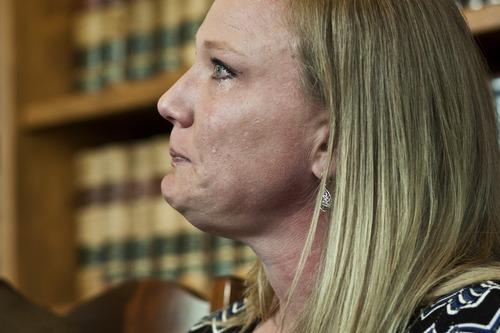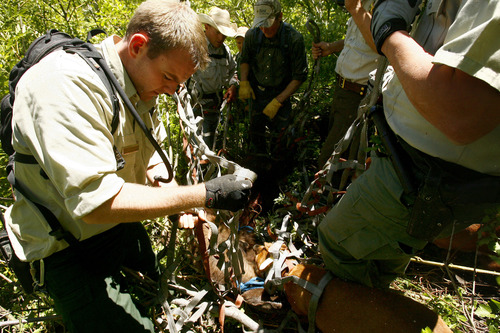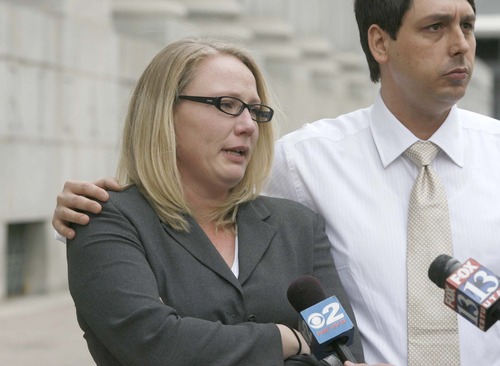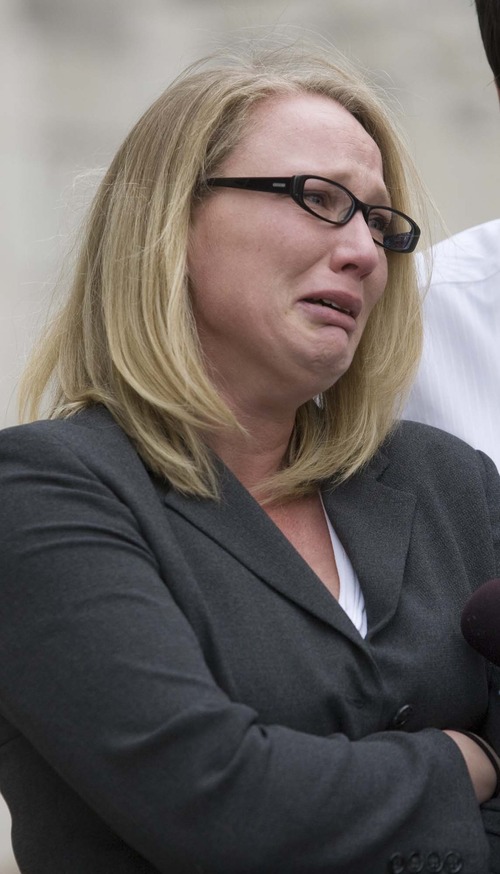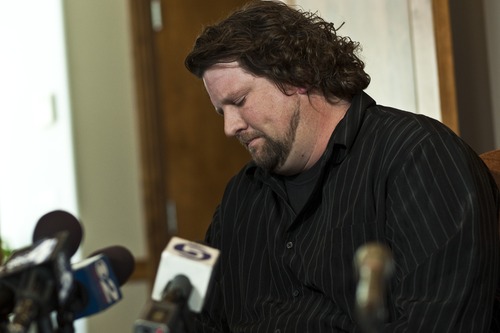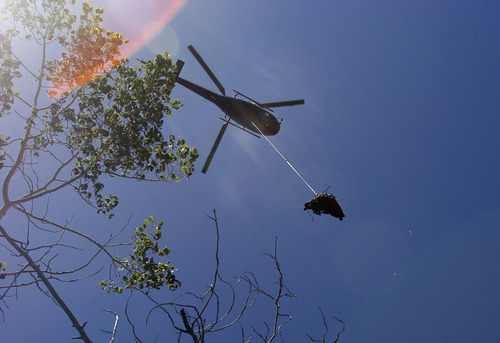This is an archived article that was published on sltrib.com in 2013, and information in the article may be outdated. It is provided only for personal research purposes and may not be reprinted.
A long legal battle over a boy who died in a bear mauling moved forward Friday when the Utah Supreme Court ruled that the state should have protected him.
In a 19-page decision, the court ruled that the state had an obligation to protect Sam Ives when he and his family went camping at Timpooneke campgrounds in 2007. A bear dragged Ives, 11, out of his tent and killed him while he and his family were in the mountains near American Fork to celebrate Father's Day.
Ives' family subsequently sued the Division of Wildlife Resources, saying the agency knew about the dangerous bear and therefore had a duty to protect campers. State attorneys disagreed. They said state officials didn't have a duty to Ives' family and that Utah law prevented lawsuits against the DWR for "natural conditions" on the land.
Friday's Supreme Court decision settles both arguments and reverses an earlier lower-court decision that sided with the state. First, the decision concludes that officials did actually have a duty to protect the family. And second, it points out that "a bear is not a 'natural condition on publicly owned or controlled lands.'"
Assistant Attorney General Peggy Stone said the case will now go back to the lower court, where a jury will decide if the state was at fault for Ives' death.
"Now it comes down to the facts," Stone said. "Did the DWR breach that duty?"
Tyler Young, an attorney representing Ives' family, said he believes that the state was ultimately negligent in its duty.
Much of the case boils down to how much officials knew and what they did in response. The night before Ives died, another camper, Jake Francom, arrived at the same site. At about 5:30 a.m. the next morning, a cinnamon-colored black bear raided Francom's coolers and batted his head while he slept. When Francom tried to stand up, the bear held him down. He then yelled, and his friends shot pistols at the bear, scaring it away.
Later that same day, Ives and his family arrived at the campsite. Though they interacted with officials on their way into the area, they received no warning about the bear. The family made dinner that night and packed up their food, though court documents add that Ives brought a granola bar and a can of soda into his tent.
The bear attacked while the family slept, tearing a hole in the tent and dragging Ives away.
In Friday's decision, the Supreme Court focused on what happened between Francom's and Ives' visits. Specifically, it points out that DWR officials tracked the bear and followed its "internal Bear Policy." Officials also cleaned up the campsite to prevent future bear incidents.
These efforts to deter the bear "gave rise to a special relationship between the State" and Ives' family, creating a duty to protect them, the ruling states.
Young said the decision defines the government's duty narrowly. Officials aren't responsible for any encounter with wild animals, he explained, just ones in which they assume responsibility and undertake efforts to protect a "distinct group."
Young also said the decision means the phrase "natural conditions" is limited to topographical features and doesn't apply to indigenous animals. He added that he was happy with the decision.
"I'm pleased because our clients get another day in court," he said.
Stone noted that the decision also includes a dissenting opinion from Judge Jill Parrish, which rejects the majority opinion regarding natural conditions. Parrish argues in her dissent that animals are part of the natural conditions on public lands and the government should therefore be immune to being sued.
Ives's family also sued the federal government. In 2011, a judge sided with the family in that case and awarded Ives' parents nearly $2 million.
Twitter: @jimmycdii


